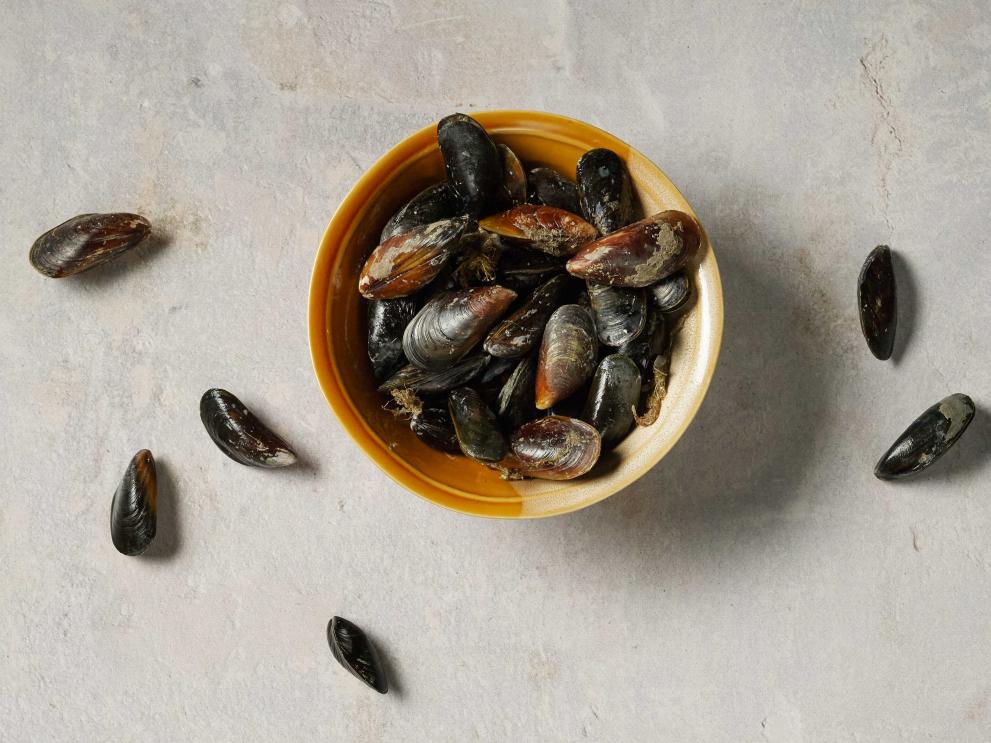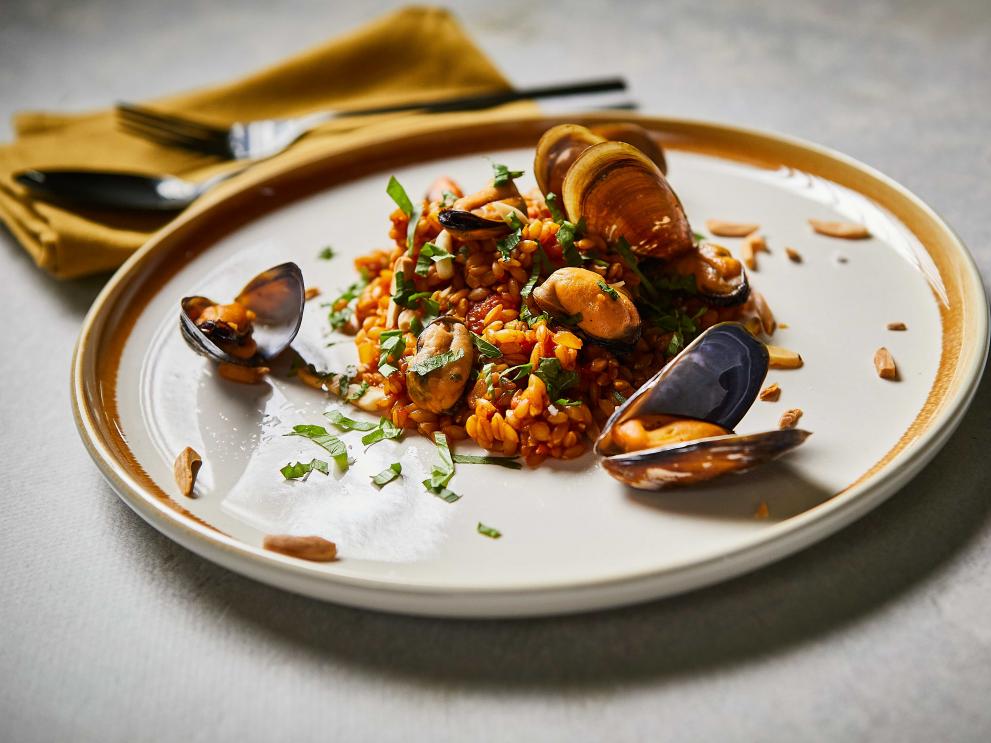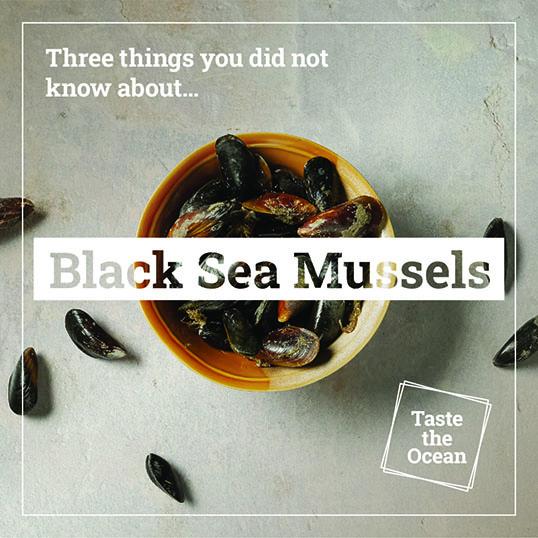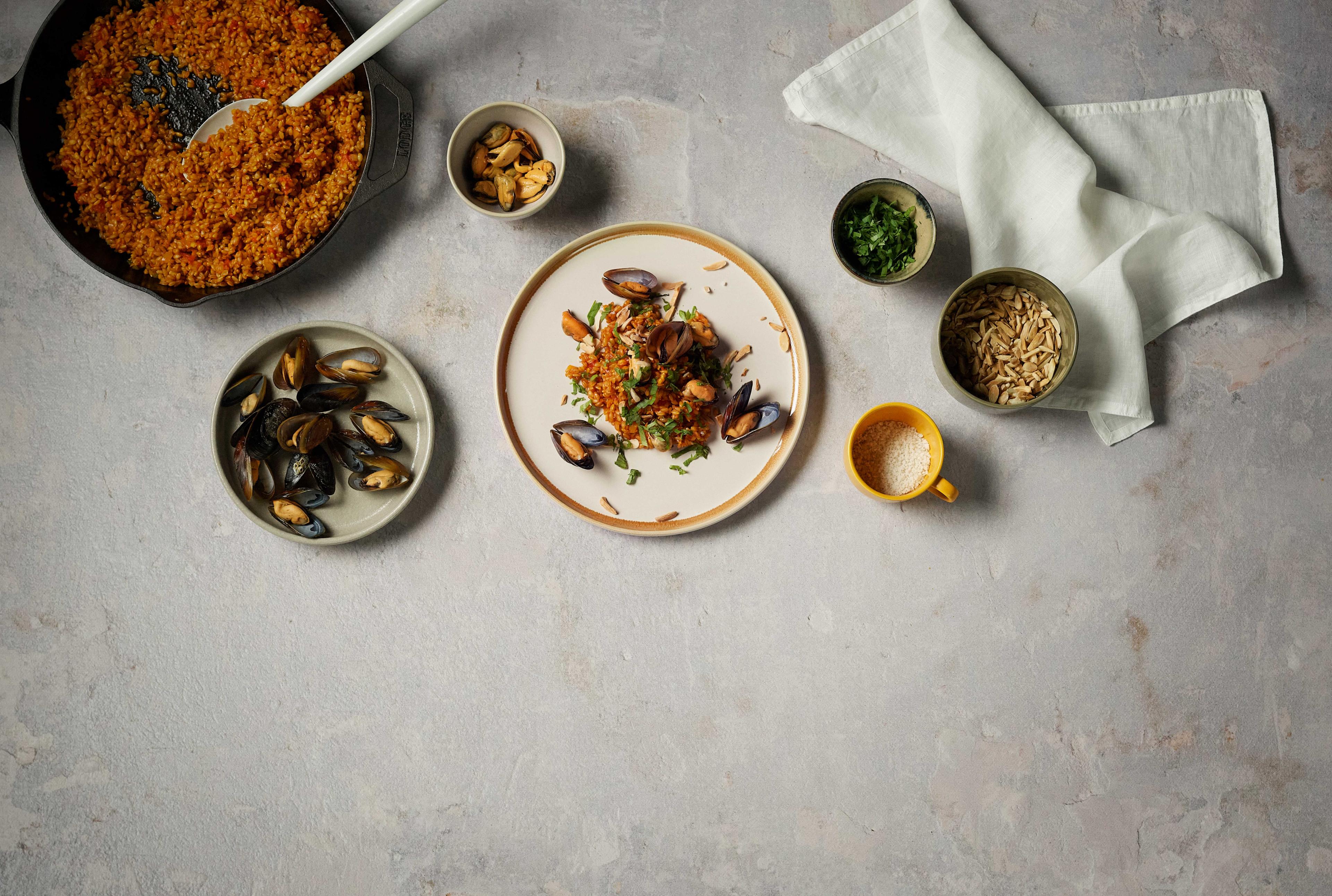Ingredients

- 900 g fresh mussels
- 5 table spoons extra virgin olive oil
- 3 garlic cloves, halved
- 3 sprigs plus 2 table spoons minced lovage
- 250 ml peeled, seeded, and diced fresh tomatoes, or canned tomatoes when not in season, finely chopped
- Salt
- 125 ml dry white wine
- 1 yellow onion, minced
- 400 g organic einkorn, soaked overnight
- Generous pinch of saffron threads
- 1 l broth from boiling the mussels
- 20 g of toasted and chopped almonds
Preparation

- Clean the mussels under running water and remove any that seem to be open.
- Add 1 litre of water to a large saucepan with a teaspoon of salt, some lovage and garlic.
- Bring to the boil and cook the mussels until they open. Remove as soon as they open. Discard any that didn’t open.
- Strain the broth and reserve the mussels and broth.
- In a pot, warm the olive oil over medium heat. Add the onion and sauté until softened, about 5 minutes.
- Add the einkorn and cook, stirring, until it is hot throughout, about 2 minutes.
- Add the tomato sauce (or chopped tomatoes) and the saffron, adjust the heat to maintain a steady simmer and cook until the liquid has been absorbed, about 2 minutes.
- Begin adding a ladleful of the hot broth to the einkorn, about 125 ml at a time, just enough to barely cover the einkorn.
- Stir often, until all the liquid has been absorbed, then add another ladleful of broth. The grains should be firm and the consistency should be creamy. You may not need all the broth.
- Remove the pot from the heat and stir in the minced lovage and the mussels. Taste for seasoning; the risotto will probably have enough salt from the broth.
- Toast 20 g of raw almonds in the oven for 5-7 minutes on 180 degrees Celsius, then chop finely and put a little handful over each portion.

Black Sea mussels
You can tell male mussels from female mussels by the colour of their flesh. The females are bright orange and the males are more yellowish.
The mussel clings to rocks thanks to little strings called byssus. They are glued to the rock with a special mussel glue that can even cling to Teflon!
Mother-of-pearl, the material making the shell of mussels, is made of 99% chalk. But thanks to 1% of special mussel proteins and the way the mussel structures its shell, the shell is many thousand times stronger than chalk!
For more interesting facts about fish, check out The Eloquence of the Sardine by Bill François.

